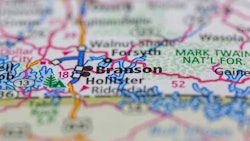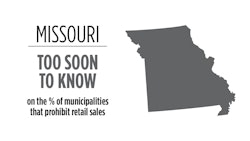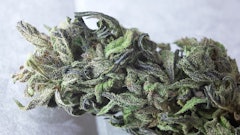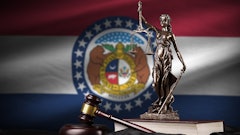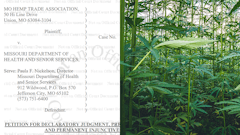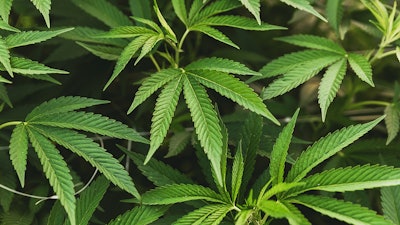
Editor's note: Since this article was published, Missouri Secretary of State Jay Ashcroft rejected emergency rules, for a second time, that aimed to implement Gov. Mike Parson's executive order to ban intoxicating hemp products.
Missouri Secretary of State Jay Ashcroft is now reconsidering an effort by Gov. Mike Parson, a fellow Republican, to ban the sale of intoxicating hemp products in the state after Ashcroft initially rejected the effort Aug. 21.
Parson issued an executive order Aug. 1 to prohibit the sale of edible products containing intoxicating hemp derivatives—such as delta-8 THC—unless originating from an “approved source.” Neither the U.S. Food and Drug Administration (FDA) nor Missouri recognizes any approved sources for these products, according to the governor’s order.
As an enforcement mechanism under the order, Parson intended to authorize the Missouri Division of Alcohol and Tobacco Control (ATC) to take disciplinary action against any licensed liquor establishment selling intoxicating hemp or cannabis products. In addition, the governor’s order directs the Department of Health and Senior Services (DHSS) to implement steps to embargo and condemn these products.
The DHSS listed more than a dozen compounds from the cannabis sativa L. plant (both cannabis and hemp) that would be included in the governor’s ban.
“Today, we are announcing new actions to combat the spread of unregulated psychoactive cannabis products that put the health of Missourians at risk,” Parson said in an Aug. 1 press release. “This executive order effectively bans the sale of these potentially harmful products in Missouri until such time approved sources can be regulated by the FDA or state of Missouri through legislative action. Protecting Missourians, especially the most vulnerable, our children, has been our guiding principle since the very beginning and remains so today.”
The Missouri ATC submitted emergency rules within the state’s Department of Public Safety to implement the governor’s order, but Ashcroft denied the emergency rulemaking on Aug. 21, The Kansas City Star reported.
Because Ashcroft denied the emergency rulemaking, ATC may only submit a proposed rule that must go through a formal rulemaking process, which will delay implementation of the governor’s order by at least six months, according to Parson’s office.
This denial fueled tensions between the outgoing governor and Ashcroft, who hoped to succeed Parson but did not win the GOP’s nomination in the Aug. 6 gubernatorial primary. Lt. Gov. Mike Kehoe, whom Parson endorsed, won the party’s nomination with 39.4% of the vote, while Ashcroft finished third with 23.2%.
“As best I can tell, you denied this emergency rulemaking because you believe hurt feelings are more important than protecting children,” Parson wrote in an Aug. 22 letter to Ashcroft. “This is a personal matter for thousands of parents and grandparents across the state, and denying the rulemaking is your attempt at retribution for my endorsement of another candidate. Safety of kids is not a political issue. I am disgusted that you are making it one.”
Parson said there has been a 600% increase in emergency room visits or hospitalizations in Missouri for children 5 years and younger experiencing “cannabis poisoning” since 2018 (when the Farm Bill federally legalized hemp).
According to the state’s DHSS, the Missouri Poison Center received seven calls in 2018 related to cannabis exposure in children five and under. By 2023, that number was 168.
After Parson’s heated letter on Aug. 22, the governor directed the ATC to resubmit the emergency rules on Aug. 23, the St. Louis Post-Dispatch reported. Secretary of state spokesperson JoDonn Chaney told the news outlet that Ashcroft is reviewing the new proposal and “has not made any decision to accept or reject.”
The Missouri ATC’s initial emergency rules associated with the governor’s executive order were set to go into effect on Sept. 1. The ATC’s resubmitted emergency rules for reconsideration would need Ashcroft to reverse course on his position to avoid the formal rulemaking process, which could delay the effective date of Parson’s order until March 2025, when a new governor is in office.










